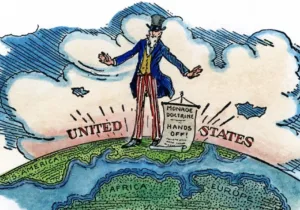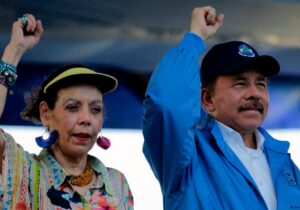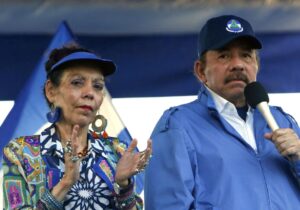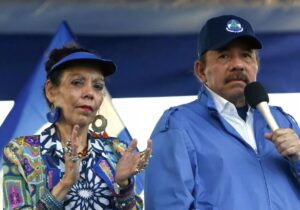During President David Granger’s salute to the People Republic of China’s (PRC) seventieth anniversary, the Guyanese leader labeled Beijing as a “reliable partner.” Indeed, the small Caribbean state and the Asian giant have a long history since bilateral relations were established in June 1972, a history that is centered on Beijing’s interest in Guyana’s natural resources and geographic location.
The attention of the international media will (temporarily) focus on Guyana as President Granger has finally announced general elections for March 2, 2020, following domestic and international pressure after he lost a no-confidence vote in 2018. The upcoming elections, Beijing-Georgetown relations, and Venezuela’s own claims to Guyanese territory should make Guyana a bigger priority for Washington.
Beijing-Georgetown Ties
The best way to understand Sino-Guyanese relations is to focus on Chinese investment and commercial presence in the country. During his September 2019 remarks, President Granger listed some infrastructural projects that have Chinese involvement, such as the “Arthur Chung Conference Centre; the upgrading of the Cheddi Jagan International Airport; the construction of a four-lane highway on the East Coast of Demerara, and the Sheriff Street-Mandela Avenue Road Enhancement Project.”
Moreover, there are defense relations between the two governments, as, according to President Granger, Beijing has awarded “scholarships to eleven Guyana Defence Force officers to pursue advanced studies in China mainly in scientific, technological and engineering fields.” Beijing has also donated non-lethal military equipment to the country: according to Guyana’s Ministry of Foreign Affairs, in early April the Caribbean nation received 31 pieces of equipment, namely patrol boats, bulldozers, one excavator, water tankers, fuel tankers, tipper trucks, off-road ambulances, and several other vehicles.
The proverbial cherry on the cake was Chinese Minister of Foreign Affairs Wang Yi’s visit to Guyana in September 2018. Anecdotally, President Granger declared that Guyana is “ready to work with China to turn bilateral consensus into actions by taking the opportunity of jointly building the Belt and Road to push forward their relations.” This is an important declaration to keep in mind as China expands its Belt and Road Initiative around the world.
Washington is Present, but not Enough
While China has cemented its presence throughout Guyana, US involvement is much more limited. The main way Washington is present in the country is defense initiatives. For example, as part of the New Horizons humanitarian initiative, earlier this year US military personnel constructed community centers and a woman’s shelter, and also conducted medical and veterinary events in several cities, like Port Mourant, New Amsterdam, and Georgetown.
Meanwhile, USAID carries out projects like providing HIV prevention services, supporting Guyana’s private sector, and also promoting “investments in non-traditional exports within four sectors: wood products, aquaculture, agribusiness, and ecotourism.”
Alas, while these initiatives are valuable, they are not as visually imposing as infrastructure projects that China is carrying out, like the Arthur Chung Conference Centre.
Moreover, Washington-Georgetown relations are undergoing a problematic period as President Granger, elected in 2015, lost a no-confidence vote in December 2018. On September 25, 2019, after several judicial decisions and much debate, the head of state announced that elections will finally be held on March 2, 2020.
The delay of the elections prompted negative reactions from the international community, including the US, toward Granger. For example, a September 19 joint statement by diplomatic representatives from the United States, United Kingdom, and European Union explained that they “deeply regret that, by surpassing September 18, the Government is currently in breach of the Constitution following its failure to adhere to the decisions of the Caribbean Court of Justice (CCJ) on 18 June and its subsequent orders.” The joint statement added the current political climate “also hinders our ability to support Guyana’s development needs,” while Beijing maintained its relations with the Granger administration as usual.
Final Thoughts
The Cooperative Republic of Guyana is not a priority for Washington, given its various other global priorities, including other countries and topics of interest throughout the Western Hemisphere. Nevertheless, this country is important, as it borders Venezuela—where the de facto Nicolas Maduro government reiterated on October 3 its claim to an area known as Guayana Esequiba, which is under Guyanese control—and it has important natural resources (particularly gold and oil). Moreover, the Chinese government is heavily interested in Guyana.
During an early October speech at the Defense Writers Group in Washington, Admiral Craig Faller, commander of US Southern Command, explained how “dozens of Chinese infrastructure projects in South America are contributing to instability” and that “China is working on 56 port deals in the region.” Guyana is one of those nations where China has managed to achieve a significant amount of presence and influence, an accomplishment reached via flashy (though also valuable) infrastructure projects and other deals.
In other words, Beijing maintains a flexible strategy as it looks to gain and secure new international partners and backers, while the US has demanded accountability and democracy from the Granger administration. Leading with a moral compass is ideal and desirable in global geopolitics, but sometimes that alienates some potential partners.







 Sponsor a student for Christianity & National Security 2024
Sponsor a student for Christianity & National Security 2024